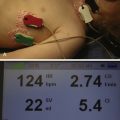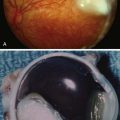In the evolving landscape of medical communications, ensuring the privacy and security of patient information is paramount. With the Health Insurance Portability and Accountability Act (HIPAA) setting the standard for sensitive data protection, healthcare providers must adapt their faxing solutions to comply with these regulations. As fax machines remain an essential tool in the healthcare industry, integrating HIPAA fax systems is no longer optional but a necessity. Below, we explore the intricacies of HIPAA faxing and how to safeguard patient information.
The Importance of Compliant Faxing in Protecting Patient Information
Alt text: Medical office with HIPAA fax services
At the core of HIPAA-compliant faxing is the protection of patient information. The privacy of medical records is not only a legal requirement but also a fundamental patient right. Faxing, though sometimes considered antiquated, is still widely used in healthcare due to its reliability and instant delivery. However, without appropriate safeguards, it can pose significant risks to patient confidentiality.
Medical practices and related entities handle a plethora of sensitive information daily. Ensuring that each fax transmission is secure shields patients from identity theft, financial fraud, and personal privacy violations. A HIPAA-compliant fax service eliminates points of failure such as misdirected faxes or unsecured lines, which could be exploited by unauthorized individuals looking to access PHI.
Furthermore, protecting patient information is not just about individual privacy—it’s about maintaining public trust in the healthcare system. When patients are confident that their data is handled with care, they are more likely to share vital health information, leading to improved healthcare outcomes. A breach can have the opposite effect, eroding trust and potentially causing harm to the patient-provider relationship.
Essential Features of a HIPAA-Compliant Fax Service
When considering a fax service for healthcare communication, it is imperative to choose one that offers HIPAA compliant features. The service must provide secure transmission protocols, ensuring that PHI is encrypted both in transit and at rest. Moreover, it should be capable of verifying recipient authenticity to prevent unauthorized access to sensitive information.
A HIPAA-compliant fax service should also provide detailed logging of all fax activities. This includes tracking who sent or received a fax, the date and time of the transaction, and confirmation that the document was successfully delivered. Such records are crucial for audits and prove compliance with HIPAA regulations, should there be an inquiry.
It is not enough for the service to be secure; it should also be user-friendly, ensuring that medical staff can use it without extensive training. This ease of use helps to reduce the potential for human error, a primary concern in the security of fax communications. Additionally, the service should offer reliable customer support to address any technical issues quickly so that the flow of healthcare operations is not interrupted.
Best Practices for Ensuring Fax Compliance Within Medical Practices
Alt text: Doctor in lab coat reading over document before using HIPAA fax services
To maintain HIPAA compliance in faxing operations, healthcare providers should adopt several best practices. Firstly, regularly updating and reinforcing staff training on HIPAA requirements is critical. Staff members need to be fully aware of the importance of compliance and the procedures necessary to maintain it.
Creating a clear and concise faxing policy is another best practice. This would outline the steps for sending and receiving faxes, handling misdirected faxes, and the process for confirming the identity of fax recipients. The policy should be easily accessible to all staff to ensure it is followed consistently.
Physical security measures are just as important as digital ones. Fax machines must be located in secure areas to prevent unauthorized access to printed documents. Furthermore, implementing access control, such as key card access or PIN codes on fax machines, adds an extra layer of protection to sensitive information being faxed.
Altogether, the integration of HIPAA compliant faxing practices is an essential component of any medical practice. By understanding and implementing the necessary precautions and procedures, healthcare providers can ensure the safety of patient PHI and maintain their compliance with vital regulations. Overall, this commitment safeguards both the privacy of individuals and the integrity of the healthcare system.





